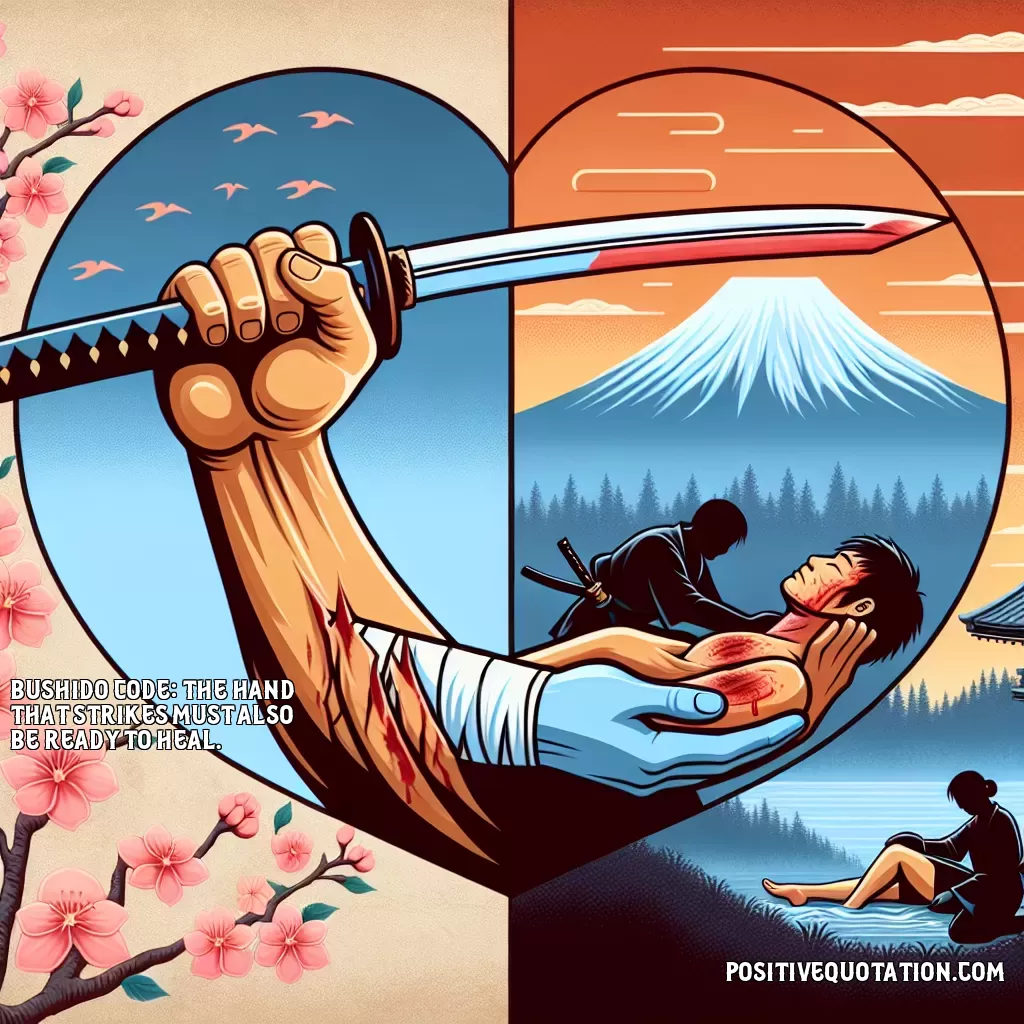
Bushido Code: The hand that strikes must also be ready to heal.
Author: Unknown
👁️ 5 views
The quote "The hand that strikes must also be ready to heal" emphasizes the dual responsibilities and balance inherent in the Bushido Code, the ethical code of conduct followed by the samurai in feudal Japan. This code, deeply rooted in Zen Buddhism and Confucianism, held principles such as honor, bravery, and righteousness in high regard. This particular quote speaks to the idea that while strength and martial ability are necessary traits for a warrior, they must be balanced with compassion and the ability to heal. The 'hand that strikes' symbolizes the warrior's capacity for force, aggression, and the duty to protect and serve. In contrast, the readiness to heal underscores the importance of benevolence, mercy, and restoration. In a broader context, this quote suggests that true strength involves an understanding of when to be assertive and when to exercise restraint and kindness. The ability to heal is as vital as the ability to cause harm, and both are crucial for maintaining harmony and balance within society and oneself. This principle reflects a broader life philosophy applicable beyond the battlefield, advocating for a balanced approach to conflicts in everyday life. A warrior, or indeed anyone practicing this code, must cultivate qualities that unify opposites—strength and gentleness—to truly embody the virtues of a respected and effective individual. Ultimately, it conveys that power carries the responsibility to not only break down or destroy what is harmful but also to support, build, and foster what is good and necessary.
Quote By: Unknown
"Unknown" often refers to individuals or subjects whose identities or details are not disclosed or widely recognized. In literature and art, "Unknown" can represent themes of anonymity or universal experiences. The concept invites curiosity about the untold stories and hidden figures that shape history and culture, reminding us that every person has a unique narrative worth exploring.
Bio added on: 2025-02-15 02:47:46